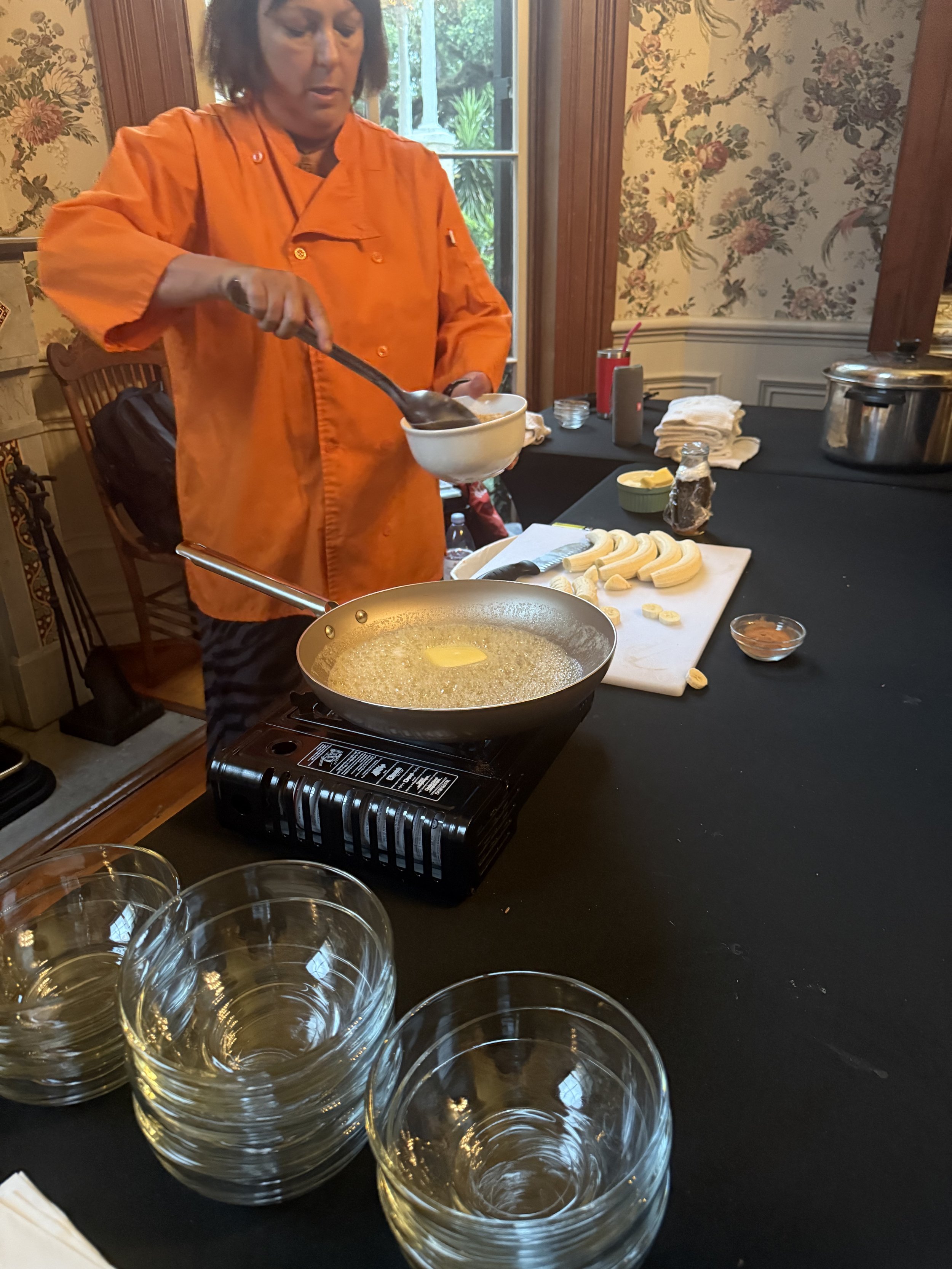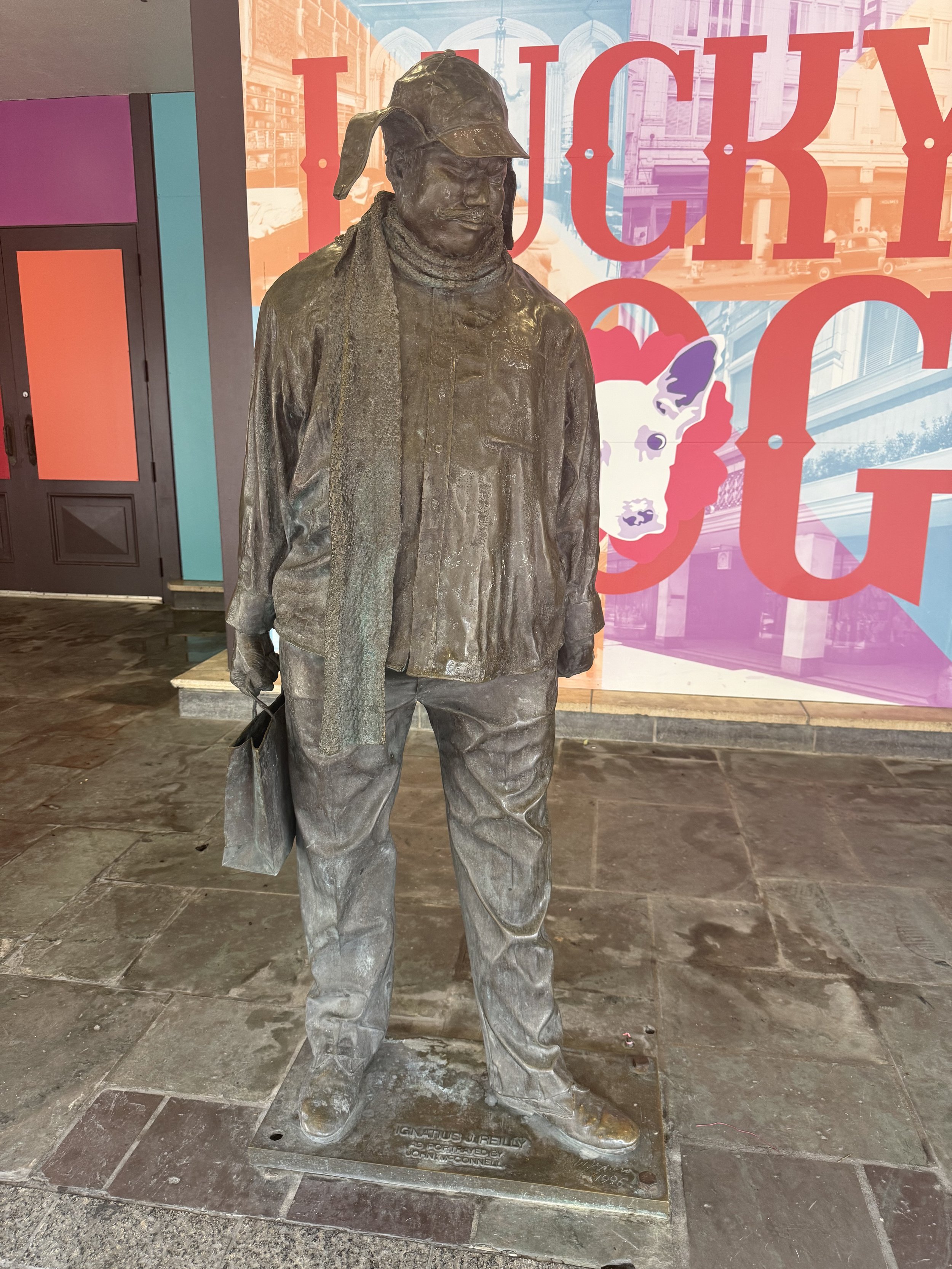You may celebrate, but only here.
To have no firm political stance is a privilege. To say you “don’t like politics,” to live passively, to let others make choices for you; it’s all rooted in comfort. When you don’t have to worry about your existence being debated in courtrooms, you have the luxury of disengagement. But when you’re born mestiza, when your family is made up of immigrants, when you’re a queer woman, you don’t get to ignore what’s happening around you. Politics aren’t an optional topic for the dinner table, it’s something that impacts the way we live.
In some ways, the city of New Orleans embodies that same passivity. It’s a blue dot in a sea of red. It’s full of people from different backgrounds, ethnicities, economic classes, yet they all are able to come together in a way that outshines their differences. But it also hides a more complicated reality: a place that doesn’t address what’s broken until it becomes impossible to ignore.
New Orleans takes things as they come. That’s part of its charm and also part of its curse. The laid-back, “let it ride” energy may bring people together on Bourbon Street, but it doesn’t push for change when change is needed most. It delays hard conversations. It lets injustices float by with a drink in hand and a shrug in the middle of a hurricane.
Maria—In Action!
During our Creole cookery class with Maria Vieages, we heard stories that revealed this pattern of quiet resignation. Maria’s restaurant was flooded during Katrina, in a disaster where she neither received support from her insurance or FEMA. Her accompanying chef recounted how her own restaurant and condo were wiped out in Hurricane Ida, and she’s never been able to reopen. These weren’t just natural disasters—they were human failures. Failures of systems that were supposed to help people rebuild, that instead left them stranded, left with the stories of heartache but not of support and recovery.
As tourists, we hear these stories and say, “What a pity.” We feel sympathy, maybe even anger, but then we move on. For the people who live here, though, the shrugging continues. “What a pity” becomes policy. The suffering is acknowledged, but nothing is done.
This kind of indifference is echoed in A Confederacy of Dunces. In the opening pages, Ignatius J. Reilly finds himself in an altercation with Officer Mancuso, who attempts to detain him without cause. The scuffle is an attraction of sorts, with “the crowd turning into something of a mob” (pg. 5). As easily as people are quick to tell Mancuso to get his hand off of Ignatius, it turns when Ignatius tells his mother that an old man, Claude Robichaux, defending him was actually the provocateur of the incident, ending in Robichaux’s arrest.
Yes, Robichaux is eventually released. But the damage is done, and no real accountability is taken. Mancuso isn’t seen for the officer trying to fulfill a quota. The crowd never got to see Robichaux’s name be cleared. The system just resets. No one learns anything.
Thee Ignatius Reilly.
This isn’t a one-off event in the novel; it’s the foundation of it. Passivity permeates every character. Mrs. Reilly knows she’s spoiled her son and made a man-baby out of him but does nothing to repair her mistakes. Gus Levy, the head of Levy Pants, watches his company collapse with mild curiosity but doesn’t intervene. Ignatius might be delusional, but at least he acts. Everyone else is content to sit still, to accept their circumstances, to wait for someone else to fix it. Ignatius is the power to act, to create change, but those around him are passive, only able to watch instead of taking that power.
That passive attitude isn’t just fictional. I see that passivity around me now. There are people who would rather not watch while immigrants are ripped away from their children. There are people who would rather say that we steal jobs, instead of realizing that they would never stand in the sun for twelve hours picking strawberries. But worst of all, I see a sea of silence in people who know better but choose to say nothing. he ones who don’t want to “get political,” who think doing their research is too much work, who claim neutrality as if it’s a virtue.
And it's not just white Americans who remain silent. I know many people of color who choose to look away. It’s especially painful when I see it in my own community, among Latinos who feel caught between two worlds.
When you’re born to parents of immigrants in a land that is not theirs, you are born with a target on your back. You have to speak before others speak for you, because what they say might erase you completely. And yet I’ve seen many first-generation Latino-Americans turn their backs on activism, on community, on culture. I’ve seen them assimilate so well they forget where they came from.
An ideology that many first-generation Latino-Americans identify can be summed up with the phrase “ni de aqui, ni de alla”. In a sense, our assimilation into culture becomes diffused from the moment our parents came here. We are fragments of two cultures, often fluent in neither. I know people who barely speak Spanish, or who are ashamed to speak English with an accent. . For many of these people, it is hard to take a stance on the issues happening currently, because although their parents or grandparents fought for the chance at a better life in the United States, they are scared. They do not want to come off as too much of either side; they do not raise their culture’s flags, or say that they support the president, because they are made up of both things. It is easier to assimilate to one culture, either American or Latino, because we live in fear of persecution from either side.
This fear of being “too much” or “not enough” paralyzes many of us. We try to blend in, to avoid criticism, to be invisible. And in doing so, we become silent when we need to be loud. We keep our heads down while the world decides who we are and what we’re worth.
The backlash we face comes from both sides. On the Latino side, we’re mocked for not being “Latino enough.” ‘Tienes cara de nopal, como no puedes hablar español?’ It comes in mockery of not being Latino enough, of not knowing what it was like to be raised in the country of your people, of not being able to roll your r’s or saying a word in English because you don’t know its Spanish equivalent. From the American side, you are exotic, or you are hated. Your skin is naturally tan, or too dark. It tells you that your authentic food, not just tacos or the Chipotle they think is authentic, is disgusting. Your heritage is “illegal.” The struggle and sacrifice your family endured to be here means nothing to people who think immigration is just a matter of paperwork and patience. . For many of those people who judge us, it becomes as simple as this: your family is full of illegal aliens. They should come here the right way, the way that is infinitely costly and inaccessible to many of us.
This is why choosing no side is not neutrality; it’s surrender. It is the illusion of respectability. It is the path of least resistance in a world that already resists you. We don’t get to be silent. We don’t get to wait for someone else to fix it.
New Orleans may dance through the pain. It may find joy in chaos. But until it demands more, hurricanes, both natural and political, will keep coming.


